Links to external sources may no longer work as intended. The content may not represent the latest thinking in this area or the Society’s current position on the topic.
New trends in evolutionary biology: biological, philosophical and social science perspectives
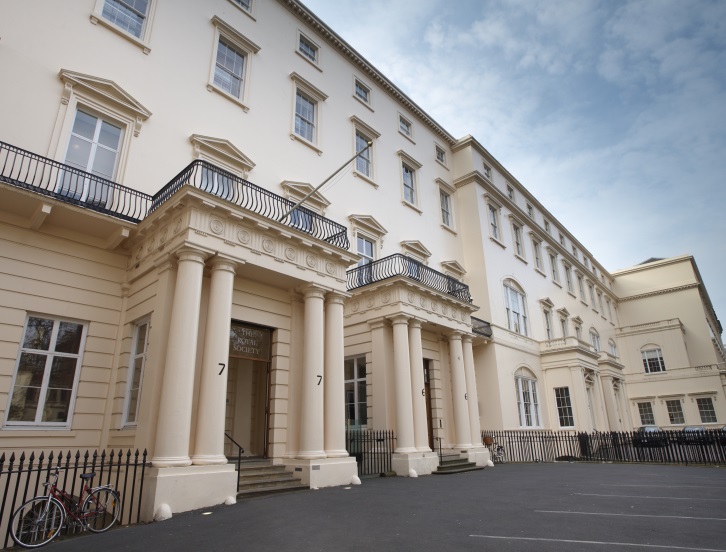
Scientific discussion meeting organised in partnership with the British Academy by Professor Denis Noble CBE FMedSci FRS, Professor Nancy Cartwright FBA, Professor Sir Patrick Bateson FRS, Professor John Dupré and Professor Kevin Laland.
Developments in evolutionary biology and adjacent fields have produced calls for revision of the standard theory of evolution, although the issues involved remain hotly contested. This meeting presented these developments and arguments and encouraged cross-disciplinary discussion, which involved the humanities and social sciences in order to provide further analytical perspectives and explore the social and philosophical implications.
The schedule of talks, biographies and abstracts are available below.
Attending this event
This meeting has taken place.
Recorded audio of the presentations are available below. Meeting papers will be published in a future issue of Interface Focus.
Enquiries: Contact the Scientific Programmes team
Organisers
Schedule
| 09:15 - 09:45 |
The extended evolutionary synthesis
Since the last major conceptual integration in evolutionary biology – the Modern Synthesis of the 1940s – the biosciences have made significant advances. The rise of molecular biology and evolutionary developmental biology, the recognition of ecological development, niche construction and of multiple inheritance systems, the -omics revolution and the science of systems biology, among other developments, have provided a wealth of new knowledge regarding the mechanisms of evolutionary change. Some of these results are in agreement with the classical Synthetic Theory and others reveal different properties of evolutionary change. A renewed and extended evolutionary synthesis unites pertinent concepts emerging from these novel fields with elements from the standard theory, but it differs from the latter in its core logic and predictive capacities. Whereas the classical theory had concentrated on genes and adaptive variation in populations, the extended framework emphasises the role of constructive processes, environmental induction, and systems dynamics in the evolution of organismal complexity. Single level and unilinear causation is replaced by multilevel and reciprocal causation. Among other consequences, this entails a revised understanding of the role of natural selection in the evolutionary process. The extended evolutionary synthesis complements the traditional gene centric perspective and stimulates research into new areas of evolutionary biology. 
Professor Gerd B. Müller, University of Vienna, Austria

Professor Gerd B. Müller, University of Vienna, AustriaGerd B. Müller MD PhD is professor at the University of Vienna, Austria, where he heads the Department of Theoretical Biology and is President of the Konrad Lorenz Institute for Evolution and Cognition Research at Klosterneuburg. His research interests focus on vertebrate limb development, evolutionary novelties, evo-devo theory, and the extended evolutionary synthesis. |
|
|---|---|---|
| 09:55 - 10:25 |
The evolutionary synthesis today: extend or amend?
Evolutionary theory has been extended almost continually since the Evolutionary Synthesis, but the principal tenets of the Synthesis have been strongly supported, the single most important exception being the greater importance accorded genetic drift, especially in molecular evolution. The calls for an extended synthesis today are largely a continuation of this process. Some elements of the EES movement, such as the role of niche construction, are welcome emphases on long recognised but perhaps under-studied processes. The union of population genetic theory with mechanistic understanding of molecular and developmental processes is a potentially productive conjunction of ultimate and proximal causation; but the latter does not replace or invalidate the former. Newly discovered molecular genetic phenomena have been easily accommodated by orthodox evolutionary theory in the past, and this appears to hold also for phenomena such as epigenetic inheritance today. In several of these areas, empirical evidence is needed to evaluate enthusiastic speculation. Evolutionary theory today will continue to be extended, but there is no sign that it requires emendation. 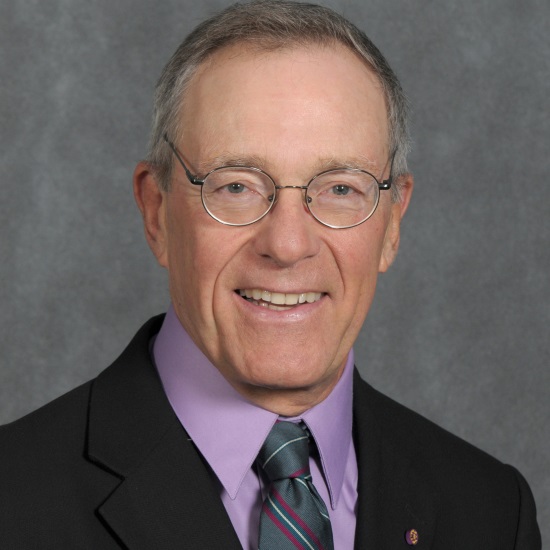
Professor Douglas Futuyma, Stony Brook University, USA

Professor Douglas Futuyma, Stony Brook University, USADouglas J. Futuyma (PhD University of Michigan, 1969) is a Distinguished Professor of Ecology and Evolution at Stony Brook University. His research concerns speciation and the evolution of interactions between species, especially herbivorous insects and their host plants. He is the senior co-editor of Coevolution (1983), and author of the textbooks Evolutionary Biology (3 editions, from 1979) and Evolution (3 editions, from 2005) and of Science on Trial: The Case for Evolution (1983). He is the editor of Annual Review of Ecology, Evolution and Systematics, serves on the editorial board of Proceedings of the National Academy of Sciences, and is a past editor of Evolution. He has been a Guggenheim fellow and a Fulbright senior scholar, and president of the Society for the Study of Evolution, the American Society of Naturalists, and the American Institute of Biological Sciences. He was elected to the American Academy of Arts and Sciences in 1996 and the US National Academy of Sciences in 2006. He is an avid naturalist. |
|
| 11:05 - 11:35 |
Developmental plasticity: re-conceiving the genotype
For several decades, the phenotype of an organism (i.e, its traits and behaviour) has been studied as the outcome of developmental ‘instructions’ coded in its DNA. According to this model, each genotype is expressed as a specific phenotype; individual differences in fitness-related traits are seen to arise from this stably inherited internal information. This simplified view of development provides the foundation for a Modern Synthesis approach to adaptive evolution as a sorting process among genetic variants. As developmental biologists are aware, however, an organism’s phenotype is not strictly pre-determined by its genotype, but rather takes shape through the interplay of genetic factors with the organism’s environmental conditions. By means of this developmental plasticity, a given genotype may express different phenotypes under different environmental conditions. Accordingly, the genotype can be understood as a repertoire of potential developmental outcomes or norm of reaction. Re-conceiving the genotype as an environmental response repertoire rather than a fixed developmental programme leads to three critical insights, as illustrated by norm of reaction data from Polygonum plants. Plastic responses to specific conditions often comprise functionally appropriate trait adjustments, resulting in an individual-level, developmental mode of adaptive variation. Environmental responses can extend across generations via effects on progeny growth and fitness, a form of inherited yet non-genetic adaptation. Finally, because genotypes are differently expressed depending on the environment, the genetic diversity available to natural selection is itself environmentally contingent. 
Professor Sonia Sultan, Wesleyan University, USA

Professor Sonia Sultan, Wesleyan University, USASonia Sultan is Professor of Biology and Environmental Studies at Wesleyan University. She holds a BA in History and Philosophy of Science from Princeton and a doctorate in Organismic and Evolutionary Biology from Harvard. Sultan’s research group studies plant developmental plasticity; she also works on the theoretical integration of plasticity into evolutionary biology. Sultan was a Resident Fellow at the Institute for Advanced Study in Berlin (2012-13) and a Center for Population Biology Post-Doctoral Fellow at the University of California, Davis (1990-93). She has served on editorial boards for Ecology, American Naturalist, New Phytologist, and (currently) Frontiers in Evolutionary Developmental Biology and Environmental Epigenetics. Sultan is the author of Organism and Environment: Ecological Development, Niche Construction, and Adaptation, published in October 2015 by Oxford University Press. |
|
| 11:45 - 12:15 |
Evolution of phenotypic plasticity
The scope and relative rates of adaptive phenotypic change from plasticity versus standard Darwinian evolution adaptive genetic changes depend on the time scale and the range of phenotypic alteration being considered. This distinction becomes blurred when plasticity itself evolves. Using standard methods from neo-Darwinian population genetic theory, I review recent models on the evolution of phenotypic plasticity in changing environments, emphasising the roles of environmental predictability and costs of plasticity in constant and labile characters. Adaptation to a novel environment may often occur by rapid evolution of increased plasticity followed by slow genetic assimilation of the new phenotype. I elucidate the connection between environmental tolerance and plasticity. The theory of evolution of phenotypic plasticity is an important extension to neo-Darwinism, but does not necessitate a major revision of its foundations. The same conclusion applies to epigenetic mechanisms including interactions between genes or tissues in development, and to transgenerational phenotypic effects such as somatic inheritance, maternal effects and DNA methylation. 
Professor Russell Lande FRS, Center for Biodiversity Dynamics, NTNU, Norway

Professor Russell Lande FRS, Center for Biodiversity Dynamics, NTNU, NorwayRussell Lande’s areas of research include theoretical population genetics (especially quantitative genetics and phenotypic evolution), stochastic demography, population and community dynamics, biodiversity, and conservation biology. Lande undertook his PhD at Harvard University. Lande has held past faculty positions at the University of Chicago, University of Oregon, University of California San Diego, and Imperial College London. He has held, or currently holds, the following fellowships and prizes: MacArthur Fellow; Balzan Prize; Weldon Prize; Fellow of the Royal Society; Royal Society Research Professor; American Academy of Arts and Sciences; National Academy of Sciences, USA. |
| 13:50 - 14:20 |
Heredity and evolutionary theory
Heredity is a central concept in biology and one of the core principles needed for evolution by natural selection. For most of the past century inheritance has been conceptualised and defined in terms of transmission of genes. Emerging developmental perspectives on evolution appear to challenge this perspective in several ways. Here I will explain how evolutionary biologists treat heredity conceptually and mathematically. These perspectives are heuristically useful but they impose a certain structure on evolutionary theory and leave out aspects of heredity that may be important to understand evolution. An alternative representation understands heredity as an outcome of developmental processes. I will suggest that this perspective helps to clarify how different mechanisms of inheritance contributes to evolution. 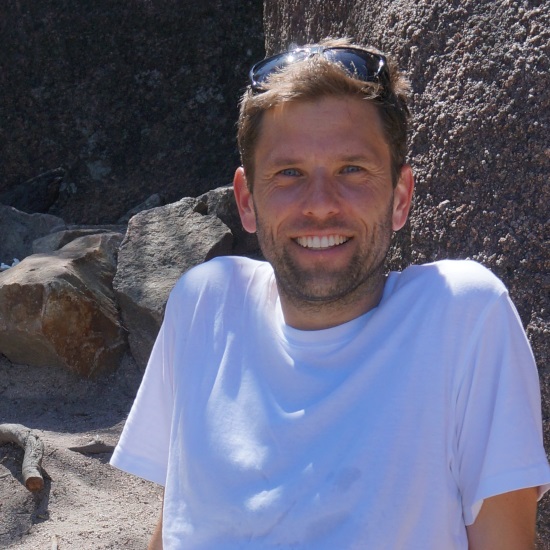
Professor Tobias Uller, Lund University, Sweden

Professor Tobias Uller, Lund University, SwedenTobias Uller is a Senior Lecturer in Evolutionary Biology at Lund University. He received his PhD in Animal Ecology at the University of Gothenburg in 2004. Following postdoctoral research at the University of Wollongong, Australia, he was appointed Departmental Lecturer in Animal Diversity at the University of Oxford in 2007, a position he kept until 2012 when he was awarded a Royal Society University Research Fellowship, also at the University of Oxford. Tobias is a Wallenberg Academy Fellow, a Fulbright Fellow and a Wenner-Gren Fellow. His research aims to understand the processes of evolutionary diversification and adaptation, and he has a particular interest in the causal relations between development, heredity and evolution. |
|
|---|---|---|
| 14:30 - 15:00 |
The ontology of evolutionary process
Ontology is the branch of philosophy that considers in the most general way the nature of reality. An ancient and fundamental ontological question is whether reality is ultimately composed of stable things or is everywhere processual, in flux. A number of distinguished 20th century biologists, including, for instance Conrad Waddington, Joseph Needham, and Ludwig von Bertalanffy, thought it important to stress the fundamentally dynamic, processual character of living systems. While evolution is of course a process, it is often implicitly supposed that the entities that evolve or that constitute the evolutionary process, whether genes, organisms, populations, or whatever, are kinds of things. Following the authors mentioned above, I argue that these too are better seen as processes, albeit highly stabilised processes. In this talk I shall argue that a process ontology is correct and that it has important implications for how we should think about evolution. First, with regard to the constituents of the evolutionary process, process ontology highlights the limitations of atemporal descriptions of organisms, for example in terms of gene sequence, and of populations as atemporal abstractions from evolving lineages. Second, whereas in an ontology of things the primary explanatory task is that of understanding change, in a world of process it is of equal or even greater importance to explain stability. The first step in articulating a fully processual view of evolution is to describe the processes that sustain persisting lineages. Doing so should provide fresh perspectives on the processes that can produce changes in lineages. 
Professor John Dupré, University of Exeter, UK

Professor John Dupré, University of Exeter, UKJohn Dupré is Professor of Philosophy of Science and Director of Egenis, the Centre for the Study of Life Sciences, at the University of Exeter. He has held previous posts at Stanford University and Birkbeck College, London. His books include: The Disorder of Things: Metaphysical Foundations of the Disunity of Science (1993); Human Nature and the Limits of Science (2001); Humans and Other Animals (2002); Genomes and What to Make of Them (with Barry Barnes, 2008); and Processes of Life: Essays in the Philosophy of Biology (2012). He is a past president of the British Society for the Philosophy of Science and a Fellow of the American Association for the Advancement of Science. Image credit: Guido Castagnoli |
|
| 15:40 - 16:10 |
Does the way in which development works bias the paths taken by evolution?
Developmental bias was defined in a seminal review some thirty years ago that resulted from an early ‘meeting of minds’ of developmental and evolutionary biologists driven by John Maynard Smith and Lewis Wolpert. Although there has been dramatic progress since then in revealing in exquisite detail how morphologies develop, there are few well-worked case studies of potential developmental bias, as well as little understanding of how important the process has been in shaping the evolution of animal form. Therefore, it is timely to think about what is needed to facilitate the analysis of the extent to which patterns of evolutionary diversification are biased by how development works, and indeed whether it is useful to distinguish this process from that of genetic channeling. 
Professor Paul Brakefield FRS, University of Cambridge, UK

Professor Paul Brakefield FRS, University of Cambridge, UKPaul Brakefield is Professor of Zoology and Director of the University Museum of Zoology in Cambridge. He is currently galvanised by the exciting project to redevelop the Museum. He is an evolutionary biologist who works with insects, and especially now with unravelling pattern and process in the evolution of several dramatic adaptive radiations of mycalesine butterflies in the Old World tropics. He is President of the Linnean Society of London and the Tropical Biology Association. He is a Fellow of Trinity College Cambridge, a Foreign Member of the Dutch Royal Academy, a Member of the EMBO, and a Fellow of the Royal Society. |
|
| 16:20 - 16:50 |
The middle ground between artificial and natural selection: niche construction as developmental bias
Organisms modify and choose components of their local environments. This ‘niche construction’ is subject to extensive research across several academic fields. It is well appreciated that niche construction can alter ecological processes, modify natural selection, and contribute to inheritance through ecological legacies. However, niche construction is not usually regarded as an evolutionary process, probably because traditional evolutionary accounts restrict evolutionary processes to phenomena that directly change gene frequencies (e.g. selection, mutation, drift). Alternative perspectives can be of value if they generate novel predictions, open up new lines of enquiry, or generate new insights. The niche-construction perspective within evolutionary biology provides an alternative account of the causal relations underlying adaptation, a stance that has already led to a number of valuable insights. Here I suggest that there is heuristic value in regarding niche construction as an evolutionary process, on the grounds that it initiates and modifies the selection acting back on the constructor (and other species) in an orderly and directional manner. As a consequence, niche construction co-directs adaptive evolution by imposing a statistical bias on selection (an externally expressed form of developmental bias). I illustrate how niche construction can generate developmental bias by comparing it with artificial selection, where I suggest it occupies the middle ground between artificial and natural selection. This perspective has heuristic value for the evolutionary biologist, leading to testable predictions related to: (i) trait evolution, including the evolution of sequences of traits and parallel evolution; (ii) responses to natural selection in the wild; and (iii) biodiversity. 
Professor Kevin Laland, University of St Andrews, UK

Professor Kevin Laland, University of St Andrews, UKKevin Laland is Professor of Behavioural and Evolutionary Biology at the University of St Andrews, and prior to that held positions at UCL, UC Berkeley and the University of Cambridge. He studies animal behaviour and evolution, with a specific focus on the evolution of cognition, particularly animal social learning, innovation and intelligence. He has published over 200 scientific articles and 10 books on these topics. His books include Sense and Nonsense: Evolutionary Perspectives on Human Behaviour, Animal Innovation, and Niche Construction: The Neglected Process in Evolution. He is a Fellow of the Royal Society of Edinburgh and of the Royal Society of Biology. |
| 09:05 - 09:35 |
Biological action in Read-Write genome evolution
Many of the most important evolutionary variations that generated phenotypic adaptations and originated novel taxa resulted from complex cellular activities affecting genome content and expression. These activities included: (i) the symbiogenetic cell merger that produced the mitochondrion-bearing ancestor of all extant eukaryotes; (ii) symbiogenetic cell mergers that produced chloroplast-bearing ancestors of photosynthetic eukaryotes; and (iii) interspecific hybridisations and genome doublings that have generated adaptive radiations and new species of higher plants and animals. Adaptive variations have also arisen by horizontal DNA transfers (frequently involving infectious agents), by natural genetic engineering of coding sequence DNA in protein evolution (e.g. exon shuffling), and by mobile DNA rewiring of transcriptional regulatory networks, such as those essential to viviparous reproduction in mammals. In the most highly evolved multicellular organisms, we now know that biological complexity scales with ‘non-coding’ DNA content rather than with protein-coding capacity in the genome. Coincidentally, we have come to recognise that ‘non-coding’ RNAs rich in repetitive mobile DNA sequences function as key regulators of complex adaptive phenotypes, such as stem cell pluripotency. The intersections of cell activities and Read-Write genome modifications provide a rich molecular and biological foundation for understanding how ecological disruptions can stimulate productive, often abrupt, evolutionary transformations. 
Professor James Shapiro OBE, University of Chicago, USA

Professor James Shapiro OBE, University of Chicago, USAJames A. Shapiro is Professor of Microbiology in the Department Of Biochemistry and Molecular Biology at the University Of Chicago. He received his BA in English Literature from Harvard in 1964 and his PhD in Genetics from Cambridge University in 1968 under Professor W. Hayes FRS. After postdoctorals at Institut Pasteur with Professor Francois Jacob (1967-1968) and Harvard Medical School with Professor Jonathan Beckwith (1968-1970), he served as Invited Professor in the School of Biological Sciences at the University of Havana, Cuba (1970-1972). At the University of Chicago since 1973, he was Darwin Prize Visiting Professor at the University of Edinburgh (1993). In 2001, he received an OBE from Queen Elizabeth for services to the Marshall Scholarship Program. He has published extensively on mobile genetic elements, natural genetic engineering, bacterial multicellularity, and read-write genome evolution, most notably his 2011 book, Evolution: A View from the 21st Century. |
|
|---|---|---|
| 09:45 - 10:15 |
Genetic, epigenetic and exogenetic information in development and evolution
I outline an approach to measuring biological information where ‘information’ is understood in the sense found in Francis Crick’s foundational contributions to molecular biology. Genes contain information in this sense, but so do epigenetic factors, as many biologists have recognised. The term ‘epigenetic’ is ambiguous, and I introduce a distinction between epigenetic and exogenetic inheritance to clarify one aspect of this ambiguity. These three heredity systems play complementary roles in development and evolution. 
Professor Paul E. Griffiths, The University of Sydney, Australia

Professor Paul E. Griffiths, The University of Sydney, AustraliaA philosopher of science with a focus on genetics and development, Paul Griffiths is Professor in the Department of Philosophy, University of Sydney and a Domain Leader at the Charles Perkins Centre, a major research institute of the university devoted to interdisciplinary approaches to lifestyle-related disease. He is a Fellow of the American Association for the Advancement of Science, and of the Australian Academy of the Humanities. From 2011-13 he was President of the International Society for History, Philosophy and Social Studies of Biology. His books include: Sex and Death: An Introduction to the Philosophy of Biology. (1999) Chicago: University of Chicago Press (with Kim Sterelny), and Genetics and Philosophy: An introduction. (2013). New York: Cambridge University Press (with Karola Stotz). |
|
| 10:55 - 11:25 |
The role of epigenetic inheritance in evolution
The construction of the ‘Modern Evolutionary Synthesis’ in the mid-twentieth century involved the exclusion of soft inheritance – the inheritance of the effects of developmental modifications – and, by implication, the possibility of any form of ‘Lamarckian’ evolution. However, in later decades, discoveries of molecular mechanisms that can support such inheritance led to a broadening of the notion of biological heredity. After discussing the historical context in which this change occurred, I present an extended notion of inheritance, focusing on epigenetic inheritance and its underlying mechanisms. I examine the evidence for the ubiquity of epigenetic inheritance, present models of population epigenetics, and discuss the involvement of epigenetic inheritance in adaptive evolutionary change and macro-evolution. I argue that considering the many evolutionary consequences of epigenetic inheritance requires an extension of the evolutionary synthesis beyond the current neo-Darwinian model. 
Professor Eva Jablonka, The Cohn Institute for the History and Philosophy of Science and Ideas, Tel-Aviv University, Isreal

Professor Eva Jablonka, The Cohn Institute for the History and Philosophy of Science and Ideas, Tel-Aviv University, Isreal
Eva Jablonka holds a MSc in Microbiology from Ben-Gurion University, Israel and a PhD in Genetics from the Hebrew University, Jerusalem, Israel. Her postdoctoral studies were in the Philosophy of Science and in Developmental Genetics. She is a professor in the Cohn Institute for the History and Philosophy of Science and Ideas, Tel-Aviv and a member of the Sagol School for Brain Research. Her main interest is the understanding of evolution, especially evolution that is driven by non-genetic hereditary variations, and the evolution of nervous systems and consciousness. She has published many papers and co-authored several books on these topics.
|
|
| 11:35 - 12:05 |
Extended genomes: symbiosis and evolution
Multicellular organisms do not live in an axenic world, but in one populated by microbes. Indeed, it can be argued that what we see as an individual animal or plant is in fact biologically a composite of the animal/plant and associated microbes. The individual generated is not simply a passive result of associations, but commonly an integrated one. Animal/plant development occurs in concert with microbes, and microbiome constitution is determined in part by the animal/plant, which may select particular microbes. In my talk I will focus on the most integrated symbioses, where microbes pass from a mother to offspring and thus represent part of host heredity. I will discuss why hereditary symbiosis evolves, how it widens our view of evolutionary processes, and how it affects what we mean by an ‘individual’. 
Professor Greg Hurst, University of Liverpool, UK

Professor Greg Hurst, University of Liverpool, UKGreg Hurst is Professor of Zoology at the University of Liverpool. He completed his PhD and postdoctoral work at the University of Cambridge on male-killing bacteria of ladybirds, before moving to University College London as a BBSRC David Phillips Fellow, and then Reader in Evolutionary biology, where he studied insect/microbe interactions more widely. His group work on the ecological and evolutionary significance of microbial symbionts to their insect hosts. Our thesis is simple: many aspects of insect biology, ecology and evolution cannot be understood without understanding the microbes associated with the insect. Our goal is to determine these impacts, through laboratory work, through analysis in natural populations, and through mathematical modelling. Work from the group is outlined at https://sites.google.com/site/hurstlab/home. |
| 13:50 - 14:20 |
Evolution viewed from medicine and physiology
Medicine and physiology are multi-level disciplines. So is physics. From physics we learn that ordered properties at high levels co-exist with randomness at lower levels. Molecules in organisms must obey the same principles. Stochasticity at low levels does not therefore exclude order at higher levels. Organisms enlist stochasticity in their development of functional behaviour, through restraints exerted by higher over lower levels. The physics of organisms must therefore interact with their genomes to produce the phenotype1,2. Reverse engineering from physiological models is then required to understand genotype-phenotype relations3. There is no privileged level of causality4, nor privileged level of selection5. Evolution involves interaction between several processes at multiple levels, as Charles Darwin also believed5,6. Without understanding these interactions, gene-centred approaches will continue to produce disappointing results in healthcare7,8, including trans-generational disease risks. 1. Alvarez-Buylla ER et al. 2016. Bioscience 66, 371-383. 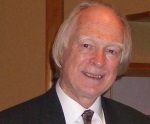
Professor Denis Noble CBE FMedSci FRS, University of Oxford, UK

Professor Denis Noble CBE FMedSci FRS, University of Oxford, UKDenis Noble discovered slowly activated potassium channel currents in the heart and undertook a quantitative analysis of their role in controlling repolarisation and pacemaker activity. He also discovered the ionic mechanisms by which adrenaline increases heart rate. He has shown that therapeutic levels of cardiac glycosides may increase, rather than decrease, potassium gradients in the heart, and has published an analytical treatment of membrane excitation theory and cable theory that provides a modern basis for the concepts of safety factor, liminal length, excitation time constants and the phenomenon of repetitive firing. He published two books on this early work: The Initiation of the Heartbeat (1975) and Electric Current Flow in Excitable Cells (1975). He is the author of the first popular book on systems biology, The Music of Life (2006) and his most recent papers and lectures concern the implications for evolutionary biology. |
|
|---|---|---|
| 14:30 - 15:00 |
Anthropomorphism in evolutionary biology
A longstanding tension exists in evolutionary biology between behavioural ecology – in which organisms are treated as having adaptive, fitness-maximising agendas; and population genetics – in which such notions are decried as naïve ‘anthropomorphism’ and are widely rejected. I explore the formal and scientific justification for evolutionary anthropomorphism and consider its application to the understanding of adaptive design at the level of genes, individuals and societies. 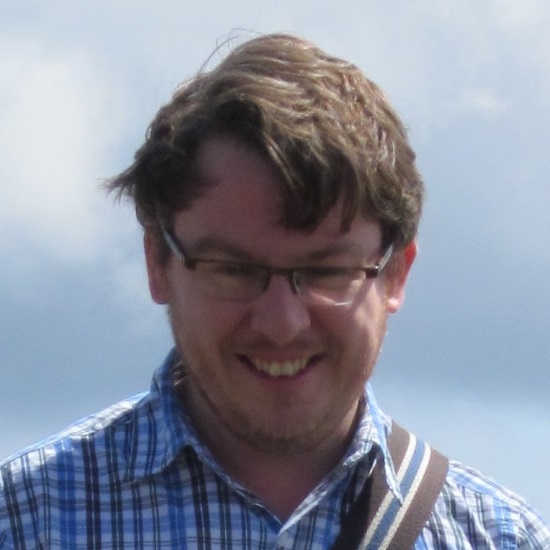
Dr Andy Gardner, University of St Andrews, UK

Dr Andy Gardner, University of St Andrews, UKAndy Gardner is a Natural Environment Research Council Independent Research Fellow and a Reader in Biology at the School of Biology, University of St Andrews. Previously he has worked at the University of Oxford, University of Edinburgh and Queen’s University (Ontario). His research lies at the interface of theoretical population genetics and behavioral ecology, with a particular focus upon the theory of social evolution. He has been the recipient of the Thomas Henry Huxley Award from the Zoological Society of London (2005), the John Maynard Smith Prize from the European Society of Evolutionary Biology (2007), the Young Investigators Award from the American Society of Naturalists (2007), the Christopher Barnard Award from the Association for the Study of Animal Behaviour (2010) and the Scientific Medal from the Zoological Society of London (2015). |
|
| 15:40 - 16:10 |
Adaptability and evolution
The capacity of organisms to respond in their own lifetimes to new challenges in their environments probably appeared early in biological evolution. At present few studies have shown how such adaptability could influence the inherited characteristics of an organism’s descendants. Nevertheless such effects on biological evolution are likely to have been important and when they occurred accelerated the pace of evolution. Ways in which this might have happened have been suggested many times since the 1870s. I shall review these proposals and discuss their relevance to modern thought. 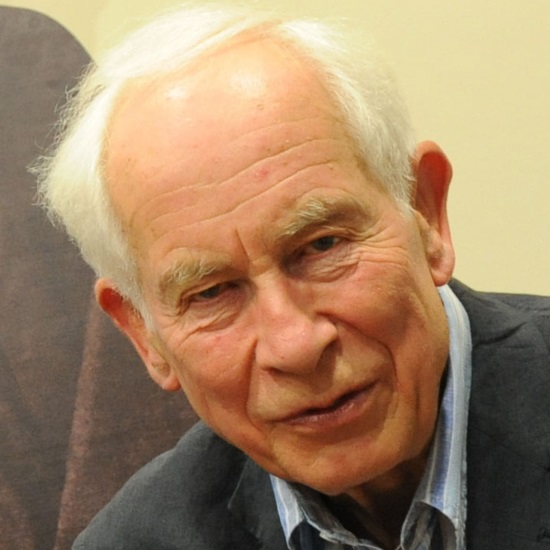
Professor Sir Patrick Bateson FRS, University of Cambridge, UK

Professor Sir Patrick Bateson FRS, University of Cambridge, UKPatrick Bateson is Emeritus Professor of Ethology at the University of Cambridge. He was Provost of King's College, Cambridge (1988 to 2003). He was formerly Director of the Sub-Department of Animal Behaviour at Cambridge and later Head of the Department of Zoology. He was elected a Fellow of the Royal Society of London in 1983 and was its Biological Secretary and Vice-President from 1998 to 2003. He was knighted in 2003. He is a foreign member of the American Philosophical Society and has a Honorary Doctorate from St Andrew’s University. He was President of the Zoological Society of London (2004-2014). His research is on the behavioural development of animals. He is co-author of Measuring Behaviour: Cambridge University Press (3rd edition pub 2007), Design for a Life: How Behaviour Develops. London: Cape (1999), Plasticity, Robustness, Development and Evolution. Cambridge University Press (2011) and Play, Playfulness, Creativity and Innovation. Cambridge University Press (2013). |
Chair

Dr Andy Gardner, University of St Andrews, UK

Dr Andy Gardner, University of St Andrews, UK
Andy Gardner is a Natural Environment Research Council Independent Research Fellow and a Reader in Biology at the School of Biology, University of St Andrews. Previously he has worked at the University of Oxford, University of Edinburgh and Queen’s University (Ontario). His research lies at the interface of theoretical population genetics and behavioral ecology, with a particular focus upon the theory of social evolution. He has been the recipient of the Thomas Henry Huxley Award from the Zoological Society of London (2005), the John Maynard Smith Prize from the European Society of Evolutionary Biology (2007), the Young Investigators Award from the American Society of Naturalists (2007), the Christopher Barnard Award from the Association for the Study of Animal Behaviour (2010) and the Scientific Medal from the Zoological Society of London (2015).

Professor Marcus Feldman, Stanford University, USA

Professor Marcus Feldman, Stanford University, USA
Marcus Feldman PhD, is the Wohlford Professor of Biology at Stanford University. He directs the Morrison Institute for Population and Resource Studies and is co-director of the Center for Computational, Evolutionary and Human Genomics at Stanford. Feldman’s areas of research include the evolution of complex genetic systems that undergo both natural selection and recombination, the evolution of modern humans using models for the dynamics of molecular polymorphisms, especially DNA variants. Together with Cavalli-Sforza he originated the quantitative theory of cultural evolution. His more than 50 PhD students and post-doctoral fellows are working in universities and industry in ten countries. He has been elected to the US National Academy of Science, the American Academy of Arts and Sciences and the American Philosophical Society. He is the author of more than 570 scientific papers and ten books on biological and cultural evolution, ecology, mathematical biology, and demography. He was the 2011 Dan David laureate in Evolution and has been awarded the 2016 Kimura Prize in Evolution by the Japanese Suzuki Foundation.

Professor Tobias Uller, Lund University, Sweden

Professor Tobias Uller, Lund University, Sweden
Tobias Uller is a Senior Lecturer in Evolutionary Biology at Lund University. He received his PhD in Animal Ecology at the University of Gothenburg in 2004. Following postdoctoral research at the University of Wollongong, Australia, he was appointed Departmental Lecturer in Animal Diversity at the University of Oxford in 2007, a position he kept until 2012 when he was awarded a Royal Society University Research Fellowship, also at the University of Oxford. Tobias is a Wallenberg Academy Fellow, a Fulbright Fellow and a Wenner-Gren Fellow. His research aims to understand the processes of evolutionary diversification and adaptation, and he has a particular interest in the causal relations between development, heredity and evolution.

Professor Douglas Futuyma, Stony Brook University, USA

Professor Douglas Futuyma, Stony Brook University, USA
Douglas J. Futuyma (PhD University of Michigan, 1969) is a Distinguished Professor of Ecology and Evolution at Stony Brook University. His research concerns speciation and the evolution of interactions between species, especially herbivorous insects and their host plants. He is the senior co-editor of Coevolution (1983), and author of the textbooks Evolutionary Biology (3 editions, from 1979) and Evolution (3 editions, from 2005) and of Science on Trial: The Case for Evolution (1983). He is the editor of Annual Review of Ecology, Evolution and Systematics, serves on the editorial board of Proceedings of the National Academy of Sciences, and is a past editor of Evolution. He has been a Guggenheim fellow and a Fulbright senior scholar, and president of the Society for the Study of Evolution, the American Society of Naturalists, and the American Institute of Biological Sciences. He was elected to the American Academy of Arts and Sciences in 1996 and the US National Academy of Sciences in 2006. He is an avid naturalist.
| 16:20 - 17:00 | Round table discussion |
|---|
| 09:05 - 09:35 |
Evolution and the metaphor of agency
It is striking that evolutionary biology often uses the language of intentional psychology to describe the behaviour of evolved organisms, their genes, and the process of natural selection that led to their evolution. Thus a cuckoo chick ‘deceives’ its host; a worker ant ‘prefers’ to tend the queen's eggs to those of other workers; a swallow ‘realises’ that winter is approaching and ‘wants’ to escape it; an imprinted gene ‘knows’ whether it was inherited paternally or maternally; and natural selection ‘chooses’ some phenotypes over others. This intentional idiom is a symptom of a broader way of thinking about and modelling evolution, which I call ‘agential’. This involves treating evolved entities, paradigmatically individual organisms, as if they were agents trying to achieve a goal, namely maximisation of reproductive fitness (or some proxy). The use of rational choice models, originally intended to apply to deliberate human action, in an evolutionary context, is one symptom of agential thinking. I offer a cautious defence of agential thinking in evolutionary biology. I argue that this mode of thinking does genuine intellectual work, and is not ‘idle metaphor’. The key point is that attributions of agency presuppose a ‘unity of purpose’. Therefore an evolved organism can only be treated as agent-like to the extent that its phenotypic traits have complementary rather than antagonistic functions, i.e. contribute to a single overall goal. Where this is not the case, e.g. because of unresolved intra-genomic conflict, the metaphor of agency ceases to be applicable. 
Professor Samir Okasha, University of Bristol, UK

Professor Samir Okasha, University of Bristol, UKSamir Okasha is Professor of Philosophy of Science at the University of Bristol. His research interests include the philosophy of science, with a particular focus on evolutionary biology, epistemology and metaphysics, probability and decision theory, and the philosophy of social science. He is the author of numerous articles in philosophical and scientific journals. His book Evolution and the Levels of Selection (OUP 2006) was awarded the Lakatos Prize in 2009 for an outstanding contribution to the philosophy of science. He is currently writing a book on the connections between evolution and rationality. |
|
|---|---|---|
| 09:45 - 10:15 |
Developmental niche construction
In the last decade niche construction has been heralded as the neglected process in evolution. But niche construction is just one way in which the organism’s interaction with, and construction of the environment, can have potential evolutionary significance. This constructed environment not just selects for, it also produces new variation. Nearly three decades ago, and in parallel with Odling-Smee’s book chapter ‘Niche-constructing phenotypes’, West and King introduced the ‘Ontogenetic Niche’ to give the phenomena of exogenetic inheritance a formal name. Since then a range of fields in the life sciences and medicine has amassed evidence that parents influence their offspring by means other than DNA (parental effects). Diverse scientists use different theoretical constructs for overlapping sets of processes, all of which show one way or another how heritable variation can be environmentally induced and developmentally regulated. Here I propose the concept of ‘developmental niche construction’ as a framework to integrate findings from fields ranging from molecular biology to developmental psychology. It elucidates how a diverse range of mechanisms contributes to the transgenerational transfer of developmental resources. This talk will explore the overall significance of these developments in the life sciences, and particularly how they advance the ongoing integration of development, heredity, ecology, and evolution. 
Dr Karola Stotz, Macquarie University, Australia

Dr Karola Stotz, Macquarie University, AustraliaKarola Stotz is senior lecturer and a Templeton World Charity Foundation Fellow at the department of philosophy at Macquarie University. She received her Masters in physical and cultural anthropology from the University of Mainz, Germany and her PhD in philosophy from the University of Ghent in Belgium. She has worked at the Konrad Lorenz Institute for Evolution and Cognition Research in Austria, the Unit for History and Philosophy of Science at the University of Sydney, the Department of HPS at the University of Pittsburgh and the Cognitive Science Program at Indiana University. In 2008 she was awarded a 5-year Australian Research Fellowship and discovery grant at the University of Sydney with the project ‘Postgenomic Perspectives on Human Nature’. Stotz has published on philosophical issues in, developmental, molecular and evolutionary biology, psychobiology and cognitive science. She focused particularly on the nature-nurture controversy, epi- and exo-genetic inheritance and developmental niche construction, non-reductive and integrative explanatory strategies, and 4 E (embodied, embedded, enactive and extended) cognition. Together with Paul Griffiths she pioneered the use of 'experimental philosophy' methods in the field of philosophy of science. She is currently working on a Templeton World Charity Foundation project entitled: ‘Causal Foundations of Biological Information’. Griffiths, P.E. and K. Stotz (2013) Genetics and Philosophy: An Introduction. CUP. |
|
| 10:55 - 11:25 |
Human nature, human culture: the case of cultural evolution
In recent years, far from arguing that evolutionary approaches to our own species permit us to describe the fundamental character of human nature, a prominent group of cultural evolutionary theorists has instead argued that the very idea of 'human nature' is one we should reject. It makes no sense, they argue, to speak of human nature in opposition to human culture. But the very same sceptical arguments have also led some thinkers – usually from social anthropology – to dismiss the related idea that we can talk of human culture in opposition to human nature. How, then, are we supposed to understand the cultural evolutionary project itself, which seems to rely on a closely allied distinction between 'organic' and 'cultural' evolution? This talk defends the cultural evolutionary project against the charge that, in refusing to endorse the concept of human nature, it has inadvertently sabotaged itself. 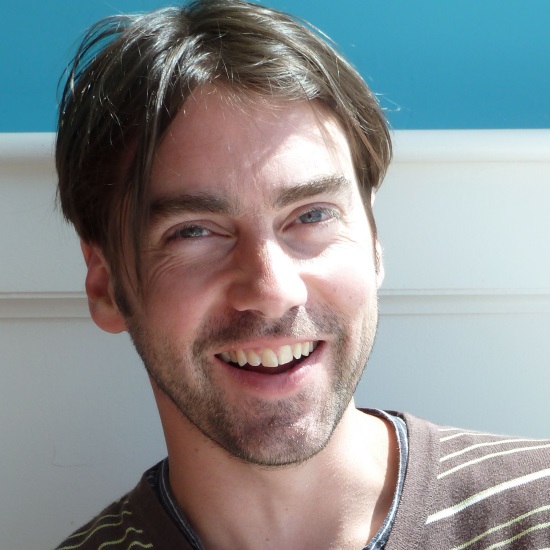
Professor Tim Lewens, University of Cambridge, UK

Professor Tim Lewens, University of Cambridge, UKTim Lewens is Professor of Philosophy of Science in the Department of History and Philosophy of Science, University of Cambridge. He is also Deputy Director of CRASSH, the Centre for Research in Arts, Social Sciences and Humanities. His research interests include the philosophy of biology, biomedical ethics and general philosophy of science. For six years he was a member of the Nuffield Council on Bioethics. His recent books (all published in 2015) include Cultural Evolution: Conceptual Challenges (OUP), The Biological Foundations of Bioethics (OUP) and The Meaning of Science (Penguin). |
|
| 11:35 - 12:05 |
Human niche, human behaviour, human nature
Scholars from a diverse range of disciplines disagree on what human nature is, what it could be, or even if there is one. There is no single ‘best’ discourse on, or mode of approach to, human nature. However, in the context of what we know about the evolutionary history, anthropology, and biology of Homo sapiens sapiens it is clear that an evolutionary approach should be among the principal modes of inquiry. At present we are faced with a few different narratives as to exactly what such an evolutionary approach entails. However, one point is clear: we need a robust and dynamic theoretical toolkit in order to develop a richer, and more nuanced, understanding of the cognitively sophisticated genus Homo and the diverse sorts of niches humans constructed and occupied across the Pleistocene, Holocene, and into the Anthropocene. In this talk I review current evolutionary approaches to ‘human nature’ and argue that we benefit from re-framing our investigations via the concept of the human niche and in the context of the Extended Evolutionary Synthesis (EES). In providing an overview of human evolution and the human niche I illustrate the benefits of moving the discourse on human nature(s) to an integrated evolutionary approach incorporating processes of the Extended Evolutionary Synthesis. This is not a replacement of earlier evolutionary approaches but rather an expansion and enhancement, a broadening of our toolkit and the landscape of inquiry. I offer brief examples from human evolutionary histories in support of these assertions. 
Professor Agustín Fuentes, University of Notre Dame, USA

Professor Agustín Fuentes, University of Notre Dame, USAAgustín Fuentes completed a BA in Zoology and Anthropology, and an MA and PhD in Anthropology at the University of California, Berkeley, and is Professor and Chair of Anthropology at the University of Notre Dame. His current research includes cooperation and community in human evolution, ethnoprimatology and multispecies anthropology, evolutionary theory, and public perceptions of, and interdisciplinary approaches to, human nature(s). Fuentes’ books include Evolution of Human Behavior (Oxford), Race, Monogamy, and other lies they told you: busting myths about human nature (University of California), and Conversations on Human Nature (with Aku Visala, Left Coast/Routledge). Recent Articles include The Extended Evolutionary Synthesis, Ethnography, and the Human Niche: Toward an Integrated Anthropology (Current Anthropology) and Integrative Anthropology and the Human Niche: Toward a Contemporary Approach to Human Evolution (American Anthropologist). |
| 13:50 - 14:20 |
A second inheritance system: the extension of biology through culture
By the mid-twentieth century the behavioural sciences could offer only the sketchy beginnings of a scientific literature documenting evidence for cultural inheritance in animals – the transmission of traditional behaviours via imitation and other processes of learning from others (social learning). By contrast, recent decades have seen a massive growth in the documentation of such cultural phenomena, driven by long-term field studies and complementary laboratory experiments. Here I first offer an overview of the major discoveries in this field, which increasingly suggest that this ‘second inheritance system’, built on the shoulders of the primary genetic inheritance system, occurs widely amongst vertebrates and possibly in insects and other invertebrates too. Its novel characteristics suggest it should have major implications for our understanding of evolutionary biology. Two major questions arising are accordingly addressed. One concerns the extent to which this second system echoes or differs from the principal properties of the primary evolutionary system described in the neo-Darwinian synthesis of the twentieth century and its extensions under discussion at this meeting. A subsidiary issue here is how the answers may differ much according to whether the focus is on the massively cumulative cultural evolution distinctive of our own species, or on the forms of cultural transmission documented for other species. The second major, and related, question concerns the extent to which the new discoveries about animal cultural transmission extend evolutionary theory, either in addition to or through interaction with the primary, genetically based inheritance systems. 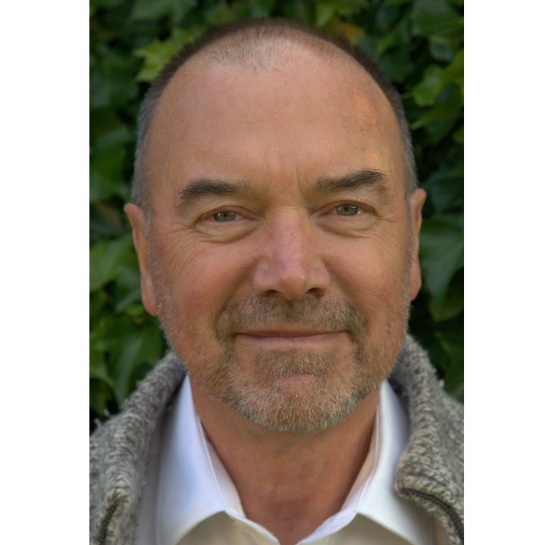
Professor Andrew Whiten FBA, University of St Andrews, UK

Professor Andrew Whiten FBA, University of St Andrews, UKAndrew Whiten is Emeritus Wardlaw Professor of Evolutionary and Developmental Psychology at the University of St Andrews. He is a Fellow of the Royal Society of Edinburgh, of the British Academy and of the International Cognitive Science Society. Through the last four decades his research has increasingly focused on the comparative study of social learning and culture, pursued through a combination of field research and 'lab' experiments spanning chimpanzees, gorillas, orangutans, several species of monkey, children and human adults. Antecedents to his editorship of the issue of Philosophical Transactions of the Royal Society corresponding to the present meeting include Culture Evolves (Phil. Trans. R. Soc. B 2011, with Hinde, Stringer and Laland) and The Extension of Biology through Culture (PNAS 2017, with Ayala, Feldman and Laland). |
|
|---|---|---|
| 14:30 - 15:00 |
Human evolution, niche construction and plasticity
Recent humans are biocultural organisms. Our worldwide distribution and status as the lone surviving species of our genus signal a level of evolutionary success often explained by both biological and cultural mechanisms. A bio-behavioural package of traits that co-exist in Homo sapiens, including large brains and bodies, small teeth and jaws, extensive cooperative care, a great deal of developmental plasticity, and an extensive amount of niche construction, are variously implicated in our success or seen as its result. It is broadly accepted that recent humans are ‘different’, particularly in the extent of our cultural interventions, than our earlier hominin forebears. But whether this is a difference in kind or degree, how far back that difference stretches, and whether those outcomes modifiable over an individual’s lifetime are important to human evolution is open to debate. Regardless of whether we accept exogenetic changes – including developmental niche construction – as consistent with an extension of, or break with the evolutionary synthesis, Homo erectus has often been proposed as the locus at which more ‘human like’ modes of behaviour (and presumably more biocultural evolution) is seated. But the paucity of the fossil record and the tenuously established links between bones and behaviours of interest limit our ability to test these assertions. I review the evolution of Homo and recent attempts to locate the transition to a biocultural organism with new data and by both working back from recent humans through archaeological time and working forward from ancestral genera. 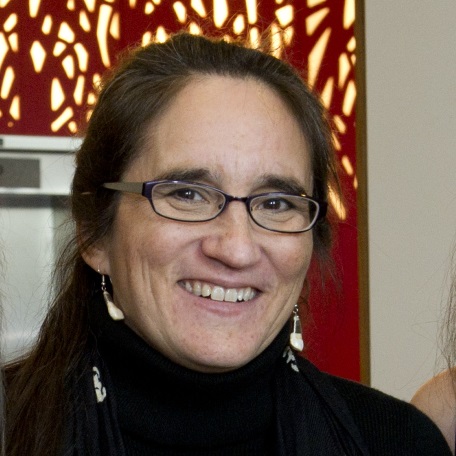
Professor Susan Antón, New York University, USA

Professor Susan Antón, New York University, USASusan Antón is a professor in the Center for the Study of Human Origins, director of the MA program in Human Skeletal Biology, and Chair of the Department of Anthropology at New York University. Her field research concerns the evolution of genus Homo in Indonesia and human influence on island ecosystems in the South Pacific. She is a member of the Koobi Fora Research Project led by Meave and Louise Leakey. And she is co-founder of the Bones and Behavior (bonesandbehavior.org) group, which aims to understand adaptation in marginal environments. Much of her work focuses on the origin and dispersal of the genus Homo, especially H. erectus in Kenya and Indonesia, for which she was elected as a fellow of the American Association for the Advancement of Science (AAAS). In addition to her research, Susan has received numerous teaching awards, including the Distinguished Teaching Medal from NYU. She is the current President of the American Association of Physical Anthropologists and past editor of the Journal of Human Evolution. |
|
| 15:40 - 16:10 |
Domestication: a model system for evolutionary biology
In his book The Variation of Animals and Plants under Domestication Darwin used domestication as a model system to explore his theories about the role of natural selection in evolution. Gregor Mendel used peas to trace the rules of heredity that formed the basis of the science of genetics, and that, when combined with Darwinian evolution, formed the basis of the Modern Synthesis. It seems only appropriate for domestication to serve once again as a model system for assessing how recent insights into the role of multiple shaping processes and forms of inheritance can be incorporated into an extended understanding of evolution. This presentation explores the value of domestication in evaluating core assumptions that differentiate the classical Modern Synthesis and the Extended Evolutionary Synthesis including: 1. reciprocal causation, 2. developmental processes as drivers of evolutionary change, 3. inclusive inheritance, and 4. the tempo and rate of evolutionary change. 
Dr Melinda Zeder, National Museum of Natural History, Smithsonian Institution, USA

Dr Melinda Zeder, National Museum of Natural History, Smithsonian Institution, USAMelinda Zeder is a Senior Scientist and Curator of Old World Archaeology in the Department of Anthropology of the National Museum of Natural History, Smithsonian Institution. An anthropological archaeologist, she is best known for her research on the origins of domestication and the emergence of agriculture, with a particular focus on animal domestication in the Near East. Her work brings together genetics, animal sciences, and archaeology to understand the mechanisms behind animal domestication and the different pathways animals and their human partners travelled into domestication. She is a recipient of the Society of American Archaeology’s Fryxell Award in Interdisciplinary Archaeology and a Fellow of the American Association for the Advancement of Science. She was elected to the American Academy of Arts and Sciences in 2008 and to the National Academy of Sciences in 2012. |
Chair
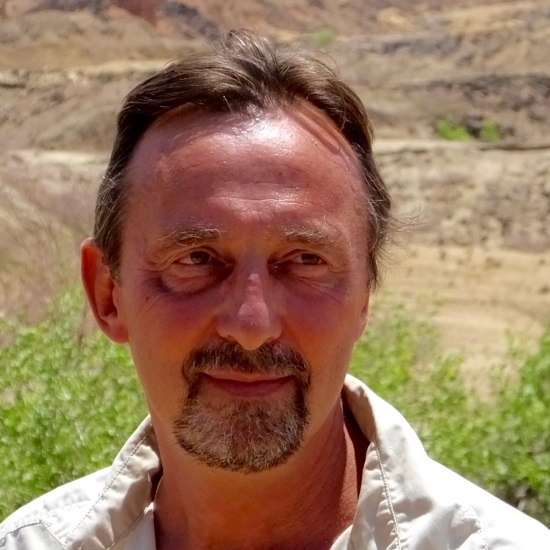
Professor Robert Foley FBA, University of Cambridge, UK

Professor Robert Foley FBA, University of Cambridge, UK
Robert Foley is the Leverhulme Professor of Human Evolution at the University of Cambridge, a Fellow of King’s College, and a Fellow of the British Academy. He is a co-founder, with Marta Mirazón Lahr, of the Leverhulme Centre of Human Evolutionary Studies at Cambridge, an inter-disciplinary research centre. His research has focused on the ecological basis of human evolution and behaviour, and in particular the application of Darwinian models to patterns and processes of human evolution, ranging from the early hominins to recent human populations. He has worked extensively in East Africa, and carried out fieldwork in other parts of Africa and Melanesia.
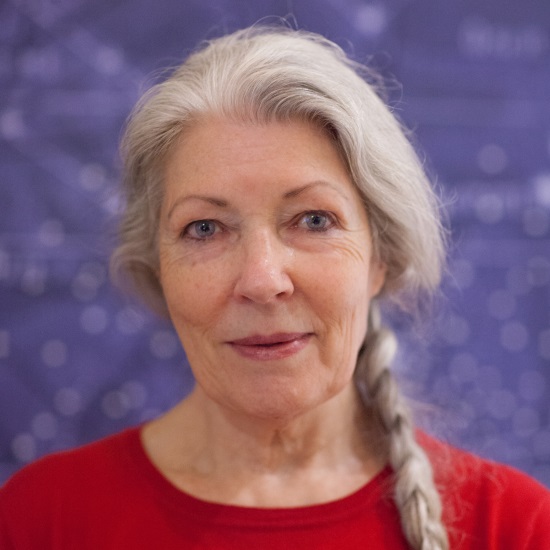
Professor Christina Toren, University of St Andrews, UK

Professor Christina Toren, University of St Andrews, UK

Dr Melinda Zeder, National Museum of Natural History, Smithsonian Institution, USA

Dr Melinda Zeder, National Museum of Natural History, Smithsonian Institution, USA
Melinda Zeder is a Senior Scientist and Curator of Old World Archaeology in the Department of Anthropology of the National Museum of Natural History, Smithsonian Institution. An anthropological archaeologist, she is best known for her research on the origins of domestication and the emergence of agriculture, with a particular focus on animal domestication in the Near East. Her work brings together genetics, animal sciences, and archaeology to understand the mechanisms behind animal domestication and the different pathways animals and their human partners travelled into domestication. She is a recipient of the Society of American Archaeology’s Fryxell Award in Interdisciplinary Archaeology and a Fellow of the American Association for the Advancement of Science. She was elected to the American Academy of Arts and Sciences in 2008 and to the National Academy of Sciences in 2012.

Professor Tim Lewens, University of Cambridge, UK

Professor Tim Lewens, University of Cambridge, UK
Tim Lewens is Professor of Philosophy of Science in the Department of History and Philosophy of Science, University of Cambridge. He is also Deputy Director of CRASSH, the Centre for Research in Arts, Social Sciences and Humanities. His research interests include the philosophy of biology, biomedical ethics and general philosophy of science. For six years he was a member of the Nuffield Council on Bioethics. His recent books (all published in 2015) include Cultural Evolution: Conceptual Challenges (OUP), The Biological Foundations of Bioethics (OUP) and The Meaning of Science (Penguin).

Professor Eva Jablonka, The Cohn Institute for the History and Philosophy of Science and Ideas, Tel-Aviv University, Isreal

Professor Eva Jablonka, The Cohn Institute for the History and Philosophy of Science and Ideas, Tel-Aviv University, Isreal
| 16:20 - 17:00 | Round table discussion |
|---|

